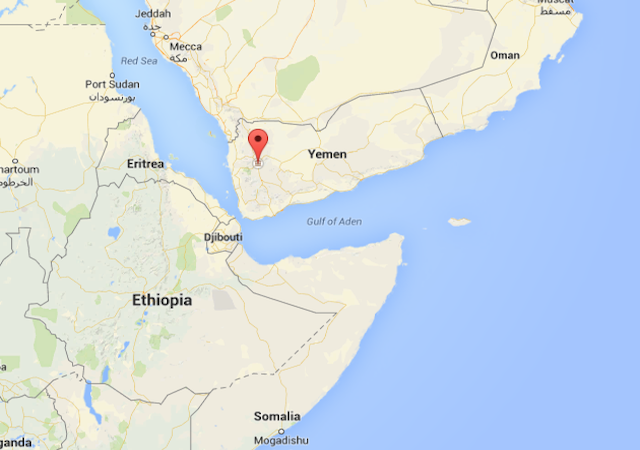Counterterror ops continue in Yemen
Al-Qaeda cleric taken out by drone?

At the end of March, White House Press Secretary Josh Earnest stood in front of the corps and dug a hole over the administration’s handling of strategic ops in the Middle East. After Yemen’s Western-backed Hadi government was forced to flee by Houthi rebels, the White House began fielding questions from the media about how the loss of the Hadi government would affect U.S. counterterrorism strategy in the region.
ABC correspondent Jon Karl lashed out after Earnest (accidentally?) revealed that the administration still views Yemen as a model for counterterrorism strategy, in spite of Hadi’s fall and the Houthi takeover.
Karl’s point was valid, and it still stands. The relationship the U.S. has (had) with the Yemeni government was productive to the extent that it allowed us to work with their agencies to control threats to US security in the Arabian peninsula. That capability began to deteriorate last year, even before the Houthi began their full-on assault on Sana’a. The model fell apart, but according to recent reports, we may still have some counterterror capabilities in the region.
Earlier today, Yemen’s al-Qaeda cell announced that top cleric and Saudi national Ibrahim al-Rubaish was killed by a drone strike. Al-Rubaish had a $5 million bounty on his head, so if this is true, it would provide some excellent optics for struggling US operations on the peninsula.
The AP has some background:
Al-Rubaish, believed to be in his late 30s, was released from Guantanamo Bay in 2006, after which he joined al-Qaida in Yemen. He was considered the group’s the main ideologue and theological adviser and his writings and sermons were prominent in its publications.
Last year, he hailed the seizure of large swaths of land in Iraq and Syria by al-Qaida’s rival, the Islamic State group. “I ask God that efforts are united to target the enemies of the religion,” he said in a video recording at the time.
If the drone attack is confirmed, it would be the first use of unmanned aircraft since Yemen sank further into turmoil last month, prompting a Saudi-led coalition to launch airstrikes on March 26 in an attempt to halt Yemen’s Shiite rebels known as Houthis who have taken over much of the country.
According to the AP, this has yet to be confirmed; but if and when Defense verifies the strike, it will signal the first attack by an unmanned aircraft since before last month’s coup. US officials told the AP that the U.S. still maintains counterterror capabilities in Yemen, but refused to go into detail (which is par for the course, especially when it comes to drone strikes.) Officials have also said that drone strikes will continue, but that strategists believe that al-Qaeda’s attention will be drawn toward the power struggle within Yemen, and away from U.S. and other western targets.
Donations tax deductible
to the full extent allowed by law.








Comments
Seems we’ve killed a lot of “top leaders” of AQ over the years and they still have a lot of “top leaders”. Qualifications must be low (much like Democrat nominees for President)for these positions. This top leader was captured and imprisoned in Gitmo when he was 23, released to the Saudis in 2006 and escaped to join AQ in Yemen that same year. Doesn’t seem like it takes much to be a top cleric in AQ. And they appear to be quite expendable.
He went from Gotcha in Gitmo to Gotcha 70 Virgins.
Wouldn’t it have been accomplished faster and cheaper with a bullet and a firing squad in the beginning?
Yes, but that wouldn’t be conducive to “winning hearts and minds” in the “War on (Some) Terror”.